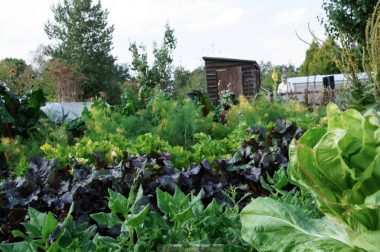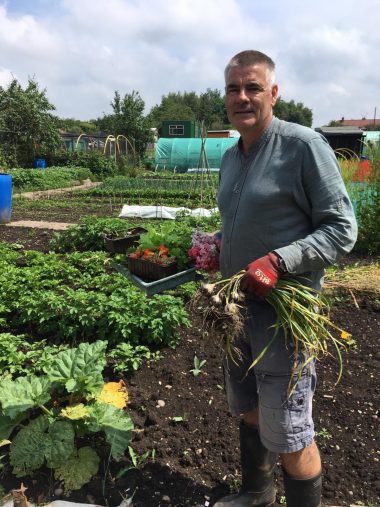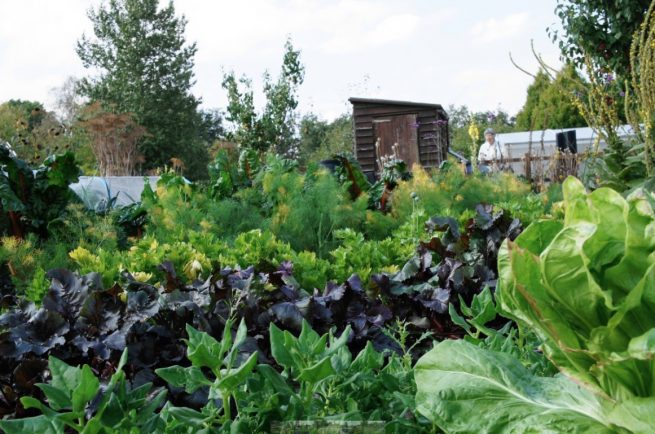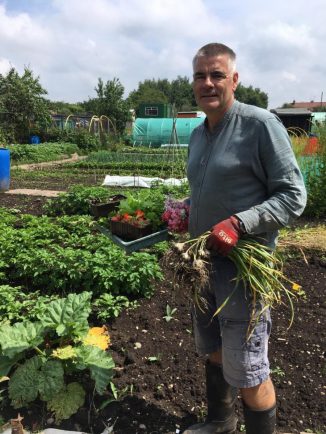Over a third of all allotment sites contain organic growing plots
Britain’s growers are going organic with four in every ten allotment sites now containing organic plots, according to a new survey conducted for National Allotment Week.
Research from national horticultural charity, Garden Organic, showed that 80per cent of people believed that attitudes to organic growing have changed for the better and that more people are now considering organic and sustainable growing.
 More than a third of all allotment sites now contain organic growing plots. (s)
More than a third of all allotment sites now contain organic growing plots. (s)Over a third of allotment users surveyed said some of the plots on their site were now organic, while 16.5per cent said that the majority of the plots on their site were organic.
When asked what prompted them to start growing organically, 56per cent said they wanted to reduce their impact on the environment and 48per cent said they were concerned about the potentially harmful effects of chemicals on their crops.
Sarah Brown from Garden Organic has welcomed the findings.
She said: “It is great to have confirmation that more people are turning to organic gardening to reduce their impact on the environment, grow their own food and stop the use of harmful chemicals on their crops.
“What puts most people off starting an organic allotment is that they don’t know how to begin, or they run out of time and energy to cultivate the whole plot in an organic way straight away.
“Gardeners also worry about how to manage pests and diseases organically.
“But organic growing is easier than you think as long as you take it in small steps to begin with”.
Sarah shares her top 5 tips of how to start growing organically on a new allotment:-
Tip one – If your new plot is thick with weeds and overgrown with grass, don’t try clearing it all before planting.
Instead, divide the plot in half. Dig one half, and cover the other half with a thick organic mulch and leave for 6 – 12 months.
You can use a variety of materials for the mulch – a thick (20cm) layer of compost or manure is ideal, topped by cardboard (add another layer of manure or weigh down so it doesn’t blow away).
The weeds will weaken in the dark and the earthworms will do their work to enrich the soil and in 6 – 12 months you will have beautiful growing soil without the toil!
Tip two – On the other half of the plot your first task should be to get out all the roots of the weeds. Compost their foliage, and drown the roots in a bucket of water for 2 months, before adding them to the compost heap.
Then turn a layer of compost into the first 5 – 10cms of the soil and you are ready to plant or sow seeds.
Tip three – Make sure that what you grow is what you really want to eat.
It’s also prudent to grow things that are expensive to buy.
If you can easily buy organic potatoes and carrots it might be better to grow luxury crops such as strawberries and raspberries which are more expensive to buy organic.
Similarly, herbs are easy to grow and you will have generous quantities to use, unlike the expensive small supermarket bunches.
Kale, a popular and probably overpriced vegetable, is very easy to grow – and keeps you in green veg throughout the winter.
 Nigel White on his allotment in Bedworth.
Nigel White on his allotment in Bedworth.Tip four – How to deal with slugs and snails and other pests! Tempting though it is to scatter pellets around the baby lettuce plants, there are better organic ways to deter pests.
Always ensure you protect vulnerable plants and seedlings.
You can create slug and snail barriers by placing slug collars round plants using grit or wool pellets, and cloches made from plastic bottles will protect against a wide range of pests.
Just cut off the bottom from a clear plastic bottle and firm into the soil around a vulnerable seedling. Netting and insect barriers can also be used.
Or you can make your own trap using beer.
Use a shallow container such as a yogurt pot and insert it into the soil.
Leave a rim of 2cm above the soil level to prevent ground beetles and other beneficial insects from falling in.
For more information on a range of slug control methods visit gardenorganic.org.uk/slugs-and-snails.
Tip Five – The soil is your most important asset so look after it.
Apply plenty of compost and leaf mould to keep your soil in tip top condition so that you can continue to grow healthy plants.
“Above all” says Sarah, “enjoy eating and sharing your produce with family and friends and allotment neighbours”.
For more information on growing organically on your allotment visit gardenorganic.org.uk/ organic-allotment-growing













